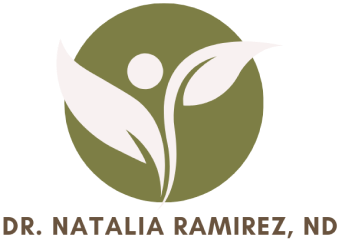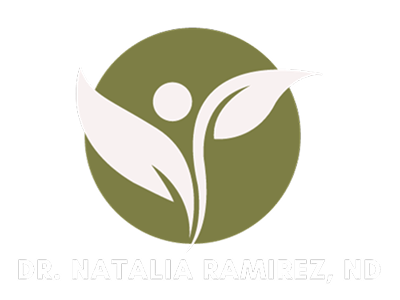As the leaves begin to change and the temperatures start to dip, the arrival of fall brings with it not only beautiful landscapes and cozy sweaters but also the inevitable cold and flu season. For many, the transition from summer to fall can be a challenging time for the immune system, leading to an increased susceptibility to colds, flu, and other seasonal illnesses. However, with the right strategies, you can boost your immune system and embrace the fall months with energy and health.
As a naturopathic doctor, I’ve seen firsthand how adopting a holistic approach to immune health can make a significant difference. In this blog post, we’ll explore practical, naturopathic tips to fortify your immune system as we move into the fall season.
1. Prioritize Nutrient-Rich Foods
One of the most effective ways to support your immune system is through your diet. The foods you eat can have a profound impact on your body’s ability to fight off illness. As fall sets in, it’s crucial to focus on nutrient-dense foods that are rich in vitamins, minerals, and antioxidants.
- Vitamin C: Known for its immune-boosting properties, vitamin C is found in abundance in fruits like oranges, kiwi, and strawberries, as well as vegetables like broccoli and kale. Incorporating these foods into your daily diet can help strengthen your immune defenses.
- Zinc: This essential mineral plays a critical role in immune function. Foods like pumpkin seeds, chickpeas, lentils, and spinach are excellent sources of zinc. Adding these to your meals can help reduce the duration and severity of colds.
- Probiotics: A healthy gut is closely linked to a strong immune system. Probiotic-rich foods like yogurt, kefir, sauerkraut, and kimchi can promote gut health by encouraging the growth of beneficial bacteria.
- Herbal Teas: Herbs like echinacea, elderberry, and ginger have long been used in naturopathic medicine for their immune-supportive properties. Incorporating these herbs into your daily routine, whether through teas or supplements, can provide an extra layer of defense against seasonal illnesses.
2. Stay Hydrated
Hydration is often overlooked as a key component of immune health, yet it plays a vital role in keeping your body functioning optimally. As the weather cools down, it’s easy to forget to drink enough water. However, staying hydrated is essential for maintaining the health of your mucous membranes, which act as a barrier against pathogens.
In addition to drinking plenty of water, consider incorporating herbal teas, broths, and water-rich fruits and vegetables into your diet. These not only contribute to your daily fluid intake but also provide additional nutrients that support immune function.
3. Get Enough Sleep
Sleep is one of the most powerful tools for maintaining a healthy immune system. During sleep, your body goes into repair mode, producing proteins called cytokines that are crucial for fighting infections and inflammation. Chronic sleep deprivation can lead to a weakened immune system, making you more susceptible to illness.
Each night, you should aim for 7 to 9 hours of quality sleep. Establishing a regular sleep routine, creating a relaxing bedtime environment, and limiting screen time at least 2 hours before bed can all help improve your sleep quality. If you struggle with sleep, consider natural remedies like valerian root, chamomile tea, or melatonin supplements, which can support better sleep without the side effects of prescription medications. However, it’s important to check with a healthcare practitioner before taking any supplementation.
4. Manage Stress
Stress is an inevitable part of life, but chronic stress can take a toll on your immune system. When you’re stressed, your body produces cortisol, a hormone that can suppress immune function over time. Managing stress is crucial for maintaining a robust immune system, especially during the fall when the demands of work, school, and holidays can increase.
Incorporate stress-reducing practices into your daily routine, such as mindfulness meditation, deep breathing exercises, or yoga. These activities can help lower cortisol levels, reduce inflammation, and improve your overall sense of well-being. To dive deeper into stress management, explore my blog, where I share five timeless strategies to help you navigate life’s challenges with resilience and tranquility.
5. Exercise Regularly
Regular physical activity is a cornerstone of good health, and it’s especially important for immune support. Exercise promotes circulation, allowing immune cells to move more freely throughout the body and do their job more effectively. It also helps reduce stress and improve sleep quality, both of which are critical for immune function.
Aim for at least 30 minutes of moderate exercise most days of the week. Activities like brisk walking, jogging, cycling, or even engaging in outdoor sports can be excellent choices. As the weather cools, consider taking advantage of the fall scenery of your city by hiking in the local parks or enjoying outdoor yoga sessions.
6. Consider Immune-Boosting Supplements
While a balanced diet should provide most of the nutrients your body needs, certain supplements can offer additional support, especially during the fall season. Consult with a naturopathic doctor to determine which supplements are right for you, but here are a few commonly recommended for immune health:
- Vitamin D: With less sunlight exposure in the fall and winter months, many people may become deficient in vitamin D, which is essential for immune function. A vitamin D supplement can help maintain optimal levels during the colder months.
- Elderberry: Known for its antiviral properties, elderberry can help reduce the severity and duration of colds and flu. It’s available in various forms, including syrups, lozenges, and capsules.
- Astragalus: This adaptogenic herb has been used in traditional Chinese medicine to strengthen the immune system. It can be taken as a supplement or brewed into a tea.
7. Practice Good Hygiene
Lastly, don’t forget the importance of basic hygiene practices in maintaining your health, particularly as we enter the fall season, when the risk of colds, flu, and other respiratory infections increases. Good hygiene is a foundational aspect of immune health, and by adhering to simple yet effective habits like frequent handwashing, avoiding touching your face, and staying home when you’re feeling unwell, you can significantly reduce your risk of getting sick and prevent the spread of germs to others.
Conclusion
As the vibrant colours of fall surround us, it’s essential to take proactive steps to maintain your health and well-being. By incorporating these naturopathic strategies into your daily routine, you can boost your immune system and enjoy a healthy, vibrant season ahead. Good hygiene practices further enhance your body’s ability to ward off illness, allowing you to enjoy all that fall has to offer without the burden of seasonal sickness.
Your health is an investment that pays off in countless ways. As we move deeper into the fall season, remember that small, consistent actions can have a big impact on your immune system. Whether it’s adding an extra serving of vegetables to your meals, taking a brisk walk in the crisp autumn air, or simply getting an extra hour of sleep, these changes contribute to a stronger, more resilient you.
As a naturopathic doctor, I can offer personalized guidance on achieving a balanced nutrition, weight management, and overall disease prevention. Feel free to book a 15-minute free discovery call here to explore how naturopathic medicine can help you. Together, we can create a personalized plan tailored to your unique needs, ensuring you stay healthy throughout this season and beyond.










